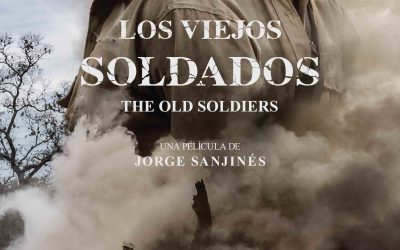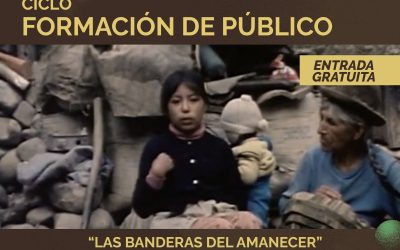http://www.lightindustry.org/thesecretnation
Tuesday, January 16, 2018 at 7:30pm
Jorge Sanjinés’s The Secret Nation
155 Freeman Street, Brooklyn
The Secret Nation, Jorge Sanjinés and the Ukamau Group, 1989, digital projection, 128 mins
Light Industry begins its 2018 season with a rare New York screening of The Secret Nation. Its director, Jorge Sanjinés, stands as one of the most radical filmmakers to emerge from the insurgent new wave of Latin American cinema in the 1960s, an artist who would become involved in every aspect of developing a film culture in Bolivia, from teaching and publishing to exhibition and production. Along with screenwriter Oscar Soria, he began making independent films in 1964 with the ten-minute Revolución, the title signalling the political orientation his project would take. The pair eventually grew into a collective that dubbed itself Ukamau, after the feature of the same name they produced in 1966 with Aymara-speaking farmers, and their work became known for its engagement with Bolivia’s majority indigenous population, its use of nonprofessional actors, and its dedication to cinema as a means for truth-telling and social transformation.
“We offered our films as weapons against the two-headed enemy that had been identified in Bolivia: the ruling class and Yankee imperialism,” Sanjinés wrote in his 1971 essay “Revolutionary Cinema: The Bolivian Experience.” “It was also important to explain why these people found the annihilation of their country convenient, and how their own cultural sterilization permitted the physical sterilization of the Bolivian people, their genocide through hunger, and the surrender of national resources. It was important to explain the mechanism that converts the national army into a ‘foreign’ one, capable of massacring its own people.”
Sanjinés and the Ukamau Group became known as the first to make films in Bolivia’s indigenous languages, though with works like The Secret Nation they attempt to go beyond merely chronicling indigenous experience, or including indigenous Andeans as performers, choosing instead to reshape film style itself to approach the conceptual frameworks of native traditions. “A film about the people made by an author is not the same as a film made by the people through an author,” Sanjinés stressed in his influential 1976 manifesto, “Problems of Form and Content in Revolutionary Cinema.” “As the interpreter and translator of the people, such an author becomes their vehicle. When the relations of creation change, so does content and, in a parallel process, form.”
Set against the turbulent backdrop of a military coup, the film follows Sebastian Maisman (Reynaldo Yujra), who returns to his former Aymara village after life in the city but ultimately disgraces his community by collaborating with the corrupt government and embezzling aid money. As a rite of expiation, he decides to journey to his homeland once more and enact the ancient Jacha Tata Danzanti, a ceremony in which the performer dances himself to death as a sacrificial offering. This series of events is told through a darting, elliptical mode of continuity, inspired by the Aymara’s cyclical notion of time. The cinematography, in turn, embraces a strategy Sanjinés calls the “integral sequence shot,” an unbroken take that encompasses all the actors of a scene without singling out one character as the narrative protagonist, based on the idea that, as the director puts it, “the collective prevails over the individual” in Andean culture. For Sanjinés, these are not simply matters of cinematic time and space, but a proposal for a filmmaking appropriate to the political conflicts at hand. “The past constantly returns, people coexist with the past and the future can be behind us rather than ahead,” he wrote in notes to the film. “In order to move forwards we need to look backwards, we must contemplate and reflect upon that past, but by incorporating it into the present we are turning it into the future.”
Tickets – $8, available at door.
Please note: seating is limited. First-come, first-served. Box office opens at 7pm.




